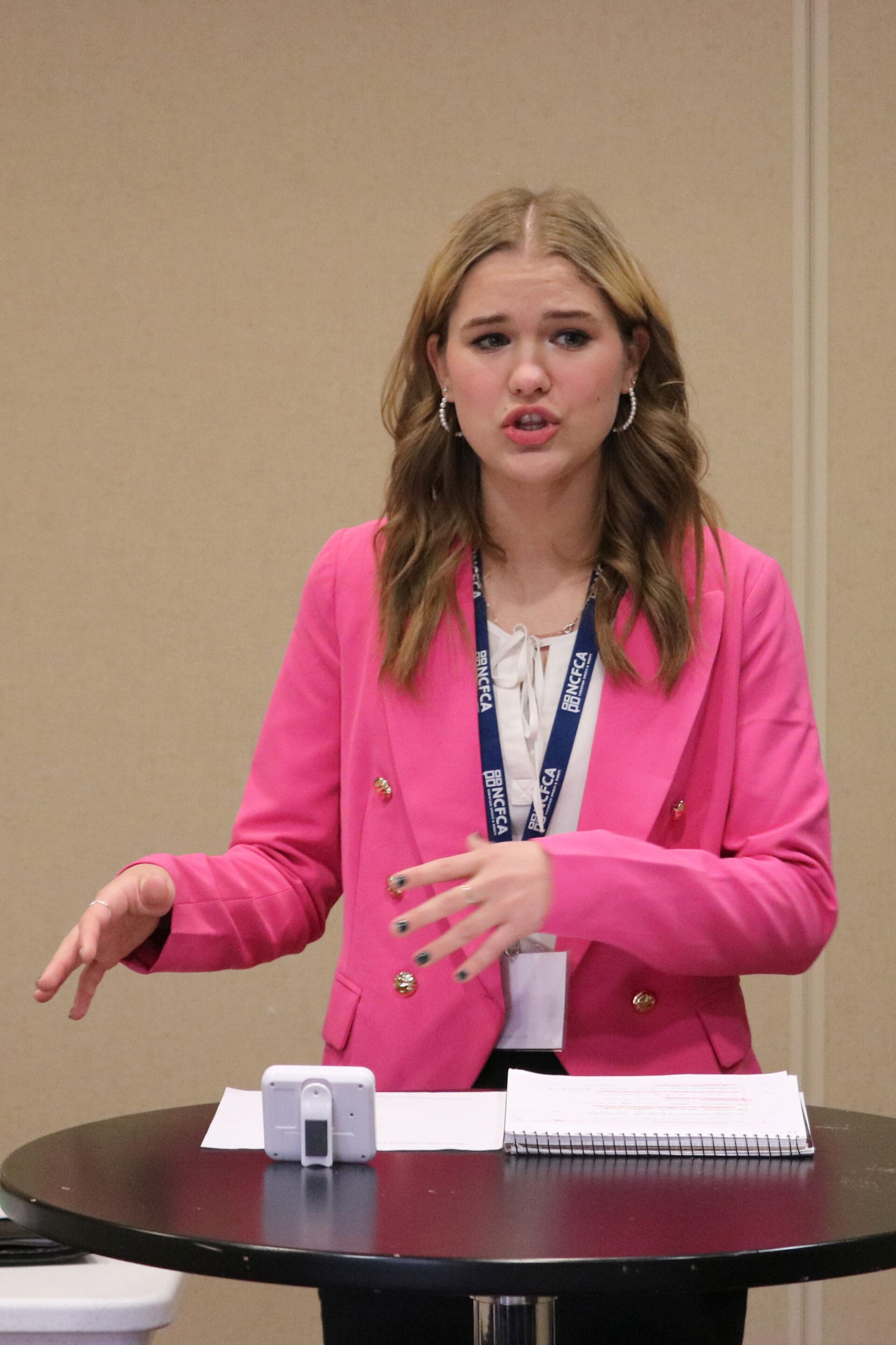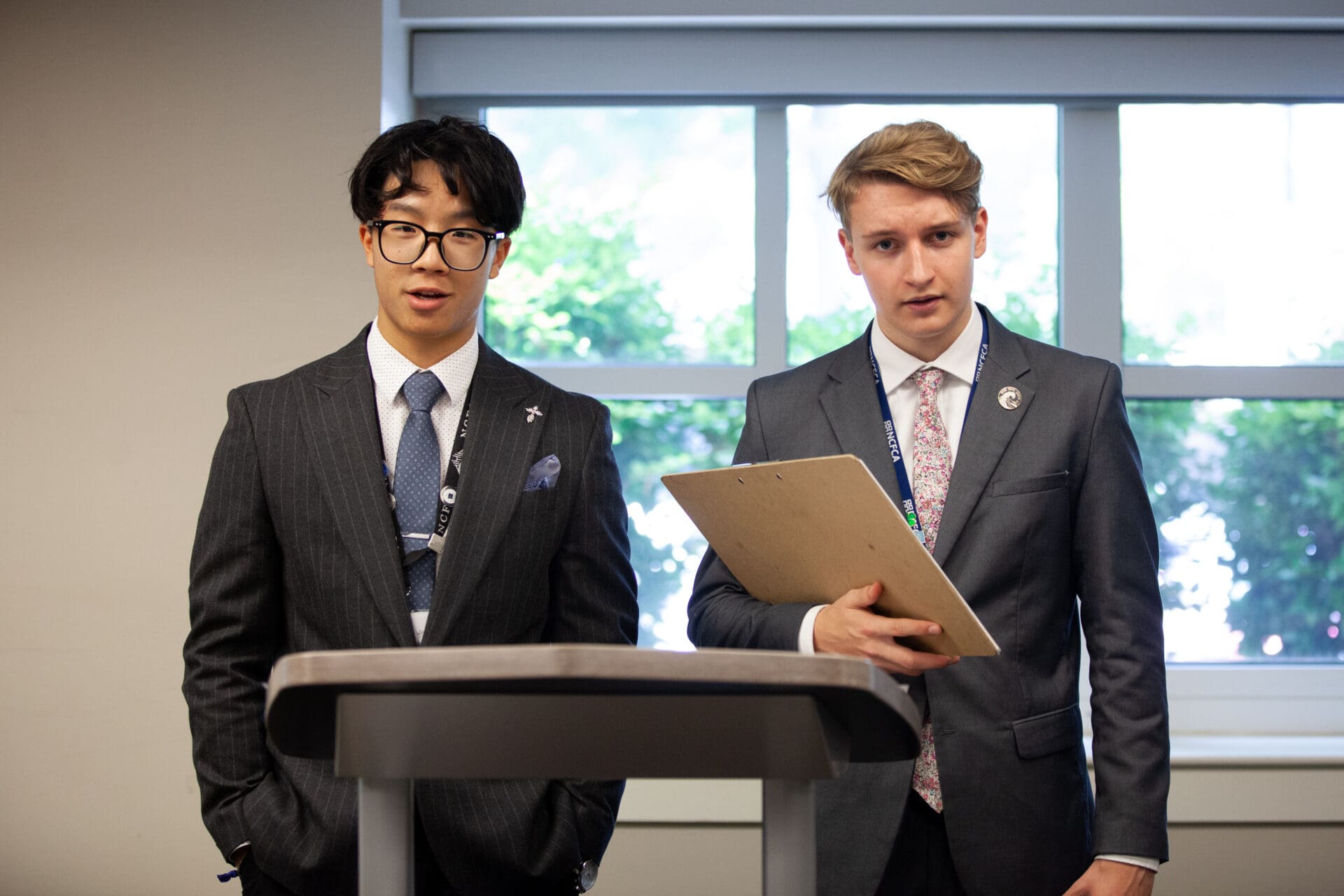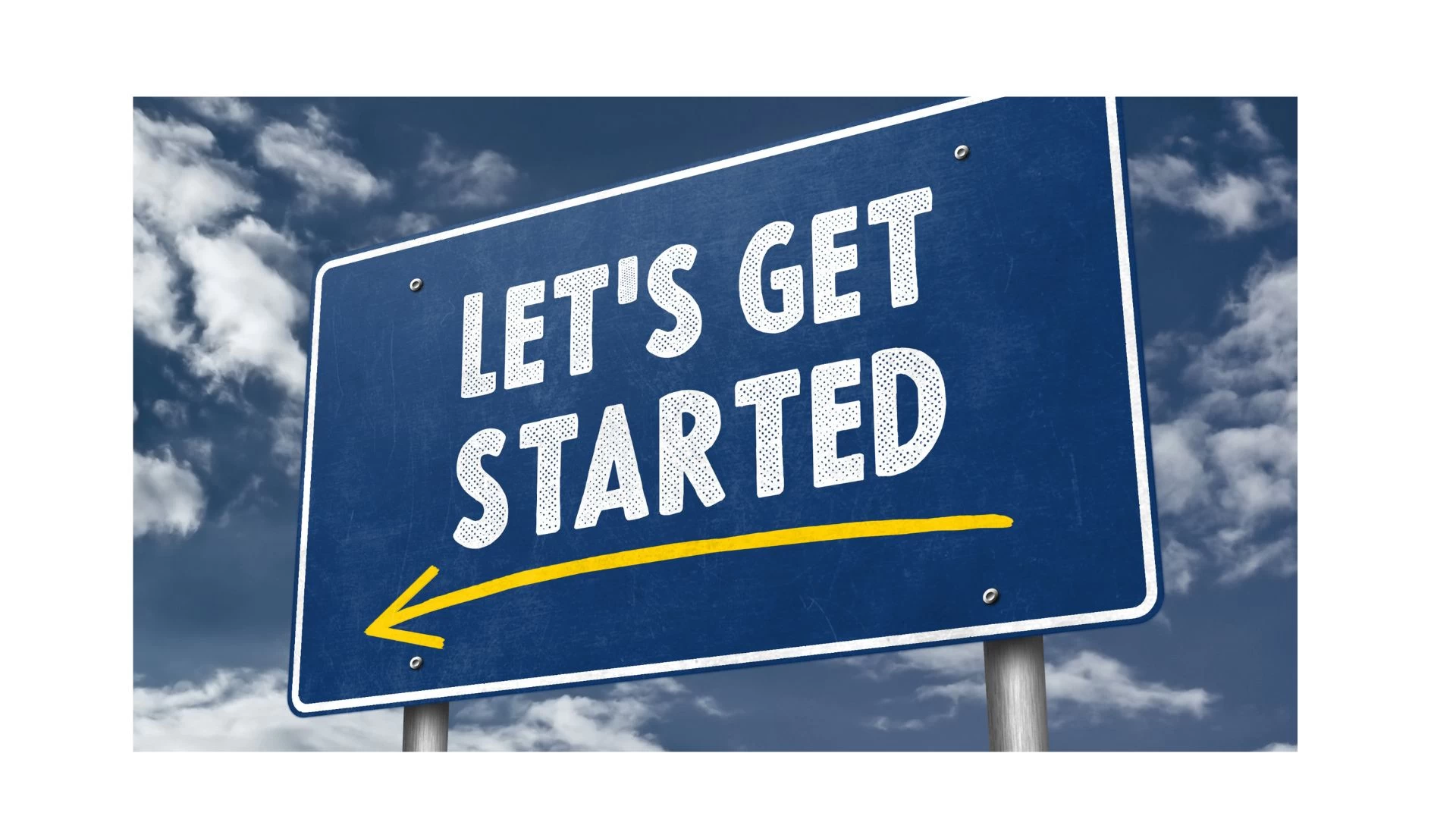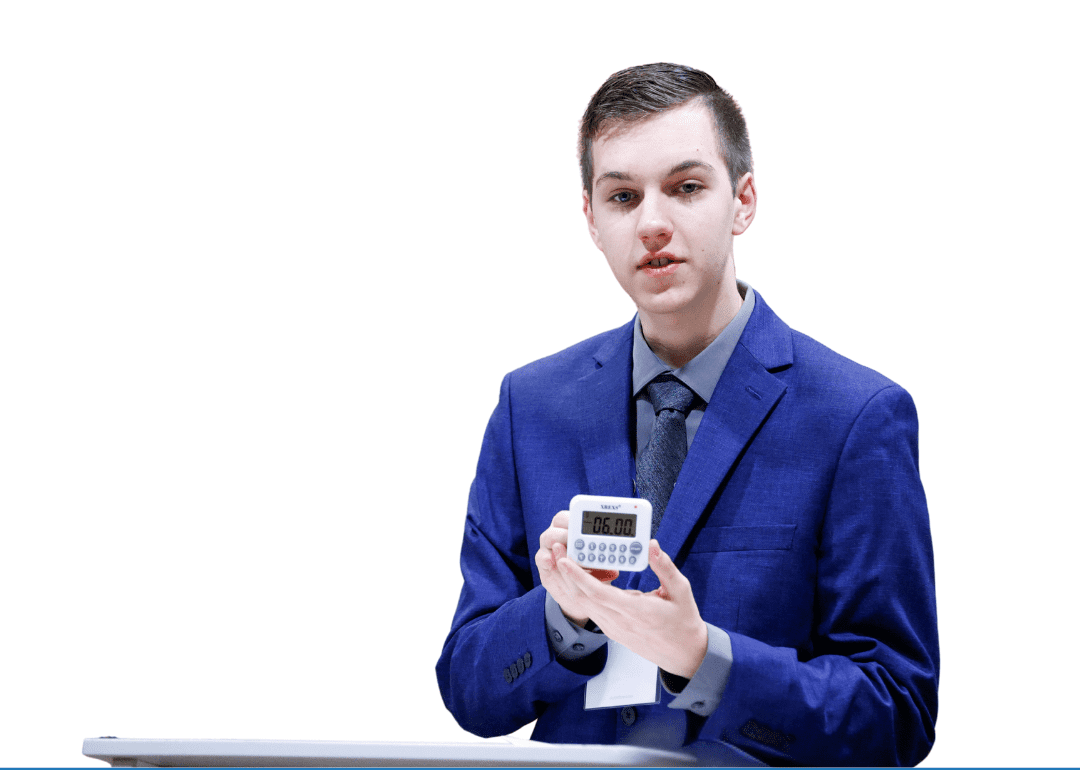Lincoln-Douglas Value Debate
In value debate, one debater affirms the resolution while another opposes or negates it. This style of debate, named after the famous debates between Abraham Lincoln and Stephen Douglas, explores a philosophical clash of competing but morally defensible values.




Our Resolution
Debate resolutions set the boundaries for the topic that competitors will debate throughout the season.
The resolution for our current 2025-2026 season is
Resolved: In the exploration and utilization of outer space, international cooperation should be prioritized.
Value Debate
Learn More
Value debate challenges students to think critically about the ideals held by individuals and societies. It seeks to discover which values should drive decision-making rather than to advocate for a particular course of action. For example, the question about the environment for value debate would not be “What should we DO to protect the environment?” but rather , “Should we VALUE the environment above the economy?”
How this Event Works
Throughout a tournament, debaters alternate between affirming and negating the assigned resolution for the season. This helps students learn that there are reasonable arguments for both sides in a clash of desirable values.
Debaters use different ways to structure cases and arguments, but you can anticipate that many rounds will feature the following categories of argumentation.
- Precise definitions: The words in a value resolution often have different nuances of meaning, and precise definitions may be required to support an argument. Therefore, the selection and quality of key definitions is important.
- Hierarchy of values: Debaters will appeal to values or ideals that they will contend their side of the resolution best supports. When there is a clash of values, a debater may argue that his value ought to be preferred over his opponent’s value.
- Criterion or standard: Debaters may offer a defined way to help explain, measure or evaluate which arguments best support the preeminent value they have identified.

The following FREE resources for the 2024-2025 season are available to help competitors start the season.
- Resolution Introduction (LD 25-26)
- Value Resolution Starting Points Video (LD 25-26)
- Exhibition Round (LD 25-26)
- Sample Affirmative Case (LD 25-26)
- Sample Affirmative Case Backup (LD 25-26-coming soon)
- Sample Negative Case (LD 25-26)
- Sample Negative Case Backup (LD25-26-coming soon)
- Debating with Integrity Education Video Clips
- Flow Sheets to Take Notes: Letter (LD) or Legal (LD)
- Ballot Sample
Please scroll down for information about additional resources available through the NCFCA Shop.

25-26 Value Resolution Kickoff | Live Online Event
New for 2025-2026! Join the NCFCA debate committee and guest expert for a 1-day, deep dive into the 2025-26 Value resolution on Saturday, July 26. We will cover resolution framework and background, relevant philosophies, Affirmative and Negative Perspectives as well as potential values, criterion, and case construction. The live event will be held from 11 AM-5 PM CT. All participants will receive the research bundle after the event. This document includes presenter notes, research links, and other valuable materials.
Can’t join us live? The research bundle, available for families or groups, will be available one week after the live event and includes presenter notes from the live online event, research links, and other valuable materials.

Learn the Basics with our Intro to Value Debate
With six hours of instruction and activities, an easy-to-follow facilitator guide, printable student activity packets, and slides, even a novice parent can successfully lead students through Intro to Value Debate. A recording of the live event is available for families or groups.

Lincoln-Douglas Value Debate FAQs
How are NCFCA rules and policies enforced?
Every type of competition has rules, and NCFCA is no exception. Our tournament Compliance teams and our National Adjudication Team work throughout the season to ensure a fair and level playing field for everyone involved. Learn more about how rule enforcement works by visiting our Compliance FAQs page.
How many debate rounds will competitors have in each tournament?
There will be six preliminary rounds of debate for all competitors (except in the event of an odd number of teams which causes some teams to have only five preliminary rounds). Teams with the strongest winning records will advance to elimination rounds. The number of elimination rounds depends on the number of teams entered in each style of debate.
How do debaters know if they will be affirmative or negative?
In preliminary rounds, debaters will have three rounds as the affirmative team and three as the negative team except in the case that they have been assigned a bye for one round. Before each round, the postings will show which teams are debating one another and which team will be affirmative and which team will be negative. Competitors must take care to confirm their side for each round. It is possible they may debate on the same side as the prior round.
What is power matching in debate
After the first round, teams are matched against another team with the same or similar win/loss record up to that point in the tournament. The details for how power matching works are available in the Tab and Qualifications Guidelines in the Resource Library.
When and how do competitors get their ballots?
After the tournament, ballots will be available from the Ballots button on the right side of the dashboard just above the Tournament Results button.
Tips for Online Debate Evidence Exchange
File uploads are strongly recommended as some formatting may not be retained if evidence is copied directly into the evidence-exchange chat.
Prior to the tournament, have evidence files named, saved as pdfs (recommended), and organized in order to upload promptly, if requested. Examples include:
- AC/1AC
- Every piece of evidence that may be presented in a debate round saved as individual files (recommended)
Ensure that each file includes a proper citation in accordance with the rules.
Lengthy pieces of evidence (more than 2,000 characters) cannot be copied and pasted into the evidence-exchange chat.
Brief pieces of evidence (less than 2,000 characters) may be shared via the evidence-exchange chat if created and formatted in Google docs or other web-based word processing platforms. Sharing direct links to evidence sources is not permitted.
Is it okay to quote the Bible in debate rounds?
For a comprehensive answer to this question, please see our blog post on the use of scripture in debate rounds
What is meant by “late arguments” in debate?
For a comprehensive answer to this question, please see our blog article on new arguments in rebuttal speeches.
Why is evidence so important in debate?
For a comprehensive answer to this question, please read our blog article on why citations matter in debate. Watch 🖥
Does NCFCA provide a printable copy of the rules?
We have transitioned to using our NCFCA.org website as the official means of publishing all competition rules and guidelines. This change allows for improved navigation, organization, and content presentation options, especially for new families.
However, we realize that some participants also like to prepare using printed documents. We offer a print-button option on all of our rule pages, but the formatting options are limited and can be cumbersome with some browsers, so here are some tips you can use to save paper and ink if you feel like you need to print the rules.
Make your own printable pages. You can easily copy the rules you want into a Google Doc and the formatting will be maintained nicely.
- This step-by-step guide will show you how to start a Google Doc.
- Once you have a Google Doc open along with the website rules on a different browser tab, use your cursor to highlight the section of rules you would like to print and then simultaneously press the keys: CTRL/C (PC) or COMMAND/C (Mac). Note: The process works best if you highlight only one set of rules or one set of guidelines at a time (without highlighting over the break between rules and guidelines).
- Next, place your cursor in the document and simultaneously press the keys: CTRL/V (PC) or COMMAND/V (Mac). This should make the text appear in your document.
- This process will work in a similar way with Microsoft Word and other document options.
- With the text copied into your own document, you can change the font size and margins to your own preferences.
Avoid duplicate content for speech rules by printing the guidelines only once for each event category (limited prep, interpretation, and platform). The guidelines for each speech category are replicated on the appropriate event pages. The exceptions to this are that Digital Presentation has an extra “Digital Presentation Protocols” section, Apologetics includes the topics, and Extemporaneous has unique timing protocols.
Please keep in mind that our website contains the official copy of all rules. We will alert participants through our affiliate communications emails if we make any substantive changes to rules or guidelines, but it is the responsibility of competitors to follow the officially published rules.
When do I need to use a disclaimer in debate?
Disclaimers in debate should be incredibly rare. The Debate Committee works hard to ensure that an adequate treatment of any of our resolutions will not require the use of material that would need a disclaimer.
Although particularly shocking, violent, or grisly material would warrant a disclaimer, we would encourage parents and coaches to educate their students about what language and examples are fitting to the setting and to lovingly correct those that are out of place. Remind debaters that they may be debating a student as young as twelve years old who cannot excuse themselves from the debate round.
We would encourage debaters to steer clear of extreme examples and descriptive vocabulary that paints a graphic picture. (Sexually explicit language or descriptions are never appropriate in a debate round and are banned by our competition material policy, along with all forms of vulgarity.) Such speech is not necessary in order to debate our resolutions. Instead, when handling potentially sensitive subject matter, students can:
- Use statistics rather than graphic stories
- Use truthful but more succinct or general language
- Focus on the philosophical or policy issues that are at the heart of the resolution
Christian debaters should seek to sharpen each other in order to gain the skills they can use as ambassadors for Christ. Learning how to discuss heavy themes in a discrete and gracious way is a skill that is worth sharpening.
The new rules don’t include allowing debaters to ask the judge his or her judging philosophy. Are debaters still allowed to do this?
Yes, debaters are allowed to ask the judge for his or her judging philosophy or experience before the start of the round. The Debate Committee removed the rule that only allowed the First Affirmative Speaker to do this for two reasons:
- This year, we made an effort to simplify the rules, narrowing them to the ones that we can adjudicate well and penalize if needed.
- The rule had served its purpose to end lengthy discussions with the judge before the debate round.
We believe debaters are capable of asking the judge for some brief information without getting into a long discussion. We are trusting them to keep the exchange very brief and start the round on time.
Find Your Voice, Shape Your Future
Join us as you embark on a transformative journey to become a powerful and effective communicator.
